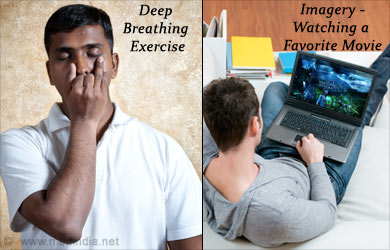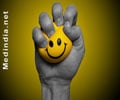How to Deal with Anger?
Anger Problems
It is often bitter to know how annoyed a person can get at other people and things around, when situations do not go as anticipated or planned. Often boundaries are violated and the person feels threatened by his surrounding to which the individual retaliates with anger. The Boiling Point Report 2008 published by the British Association of Anger Management reveals that one out of ten people face problems controlling anger. Also, it was found that one out of four people are worried about the intensity of their anger.

The most common outcome of anger is shouting, yelling and use of abusive language. An angry person at times throws objects to express rage. This emotion can propel a person out of control which often leads to excessive mental stress. Anger is a normal emotion that has three components, which include behavior, cognitive experience and physical reactions. The third component of physical reaction is also referred as ‘fight or flight’ response. This is an in-born, primitive response of the human body, which prepares either to ‘fight’ or ‘flee’ from a situation.
Anger is not always bad. When the person reacts to unhealthy situations with right levels of irritation, it protects an individual’s general interests. In fact, Aristotle saw anger as a good emotion, if it could resolve the problem in a positive way.
Anger Issues
‘Turn blind to anger. Else it will turn you blind.’
Anger is associated with emotions and this usually has an impact on the furious person.
The common issues that usually arise in this situation are listed here.
- Shouting at people
- Use of abusive language
- Throwing or breaking objects
- Overeating
- Physically hit, hurt another person
- Alcohol addiction - This is an extreme reaction
There are two different patterns of rage that a person could express, sometimes Passive Aggressive Behavior and at other times Aggressive Anger. In the first case, the person expresses similar patterns of reaction when in anger and when having a negative attitude, whereas with Aggressive Anger, a person indulges in bullying, destroying, hurting, threatening and taking vengeance on other people and the surroundings.

Anger Management
Many times, people feel skeptical to speak about emotions, but, confiding in, a close friend, an aunt, parents, a doctor or a counselor will help an angry person smoothen daily life situations. Today, apart from one-to-one anxiety therapy and anger management therapy, psychologists, counseling, anger management therapists and anger management tests are all available online.
Anger Management Techniques for Adults
When in a state of anger, the body releases chemicals, ready to fight or to flee from threat. The symptoms that follow include tension, sweating, confused thinking, increased blood pressure and more. In such situations, it is good to follow some of the mentioned techniques and anger strategies. These are time tested ways to control anger and have shown positive results for many people.
- Deep breathing exercises: Breathe in through one nostril keeping the other closed using the thumb. Once done, release the closed nostril, block the other with the ring finger and breathe out. Repeat this ten times. Feel the air flowing through the lungs by entirely concentrating in the exercise.
- Imagery: Sit in a calm place for 5-10 minutes and think of the most favorite destination imagining personal presence at that place. This may be a mountain spot, a beach side, watching a favorite movie or walking in a garden with a pet.

- Imagination: Paint a beautiful picture of a calm place in the mind. Feel each of the senses experiencing every small detail. If it is a picture of the beach side, see the sun set down; breathe in fresh air; taste fresh apple juice; listen to the sound of the waves; feel the breeze on the skin and touch the sand.
- Progressive Muscle Relaxation Techniques: Look to a calm, private place to work on this technique. During this practice, every muscle in the body is brought into a tense state and then relaxed. Placing the hand in claw shape helps tense the muscles in the fingers. Hold for five seconds and release. Make a fist to tense the muscles on the hand and let loose. Similar patterns may be followed for rest of the body parts.
Anger Management for Teens
A teenager usually goes through mood swings and hormonal changes. These cause variations in their behavioral patterns and anger is one of the common traits. Here are is a simple step-by-step method that a teenager can follow:
- First identify causes to the problem

- Before reacting aggressively, think about the reaction
- Evaluate the result of a specific reaction
- Decide that reaction which will best fit the situation
- Review the reaction
Anger Management for Kids
Kids get angry when they do not get what they want. This is a kind of aggressive behavior used to get things they expect. Working out the situation together with an angry child is one of the best methods to resolve anger in children. Make it a fun exercise by giving a name and an imaginary icon to anger. Explain what it is and walk them away from the emotion. Diverting the child’s concentration to a different activity helps at many times and is a very effective method. Appreciating a child’s performance in every little thing also helps in staying away from emotional imbalance. A 24-hour star chart to reward the child for keeping away from anger does encourage. Draw a star every four hours if the child has been free from anger. Parents have to remember never to shame the child in public. Dealing this personally in a separate room deserted from others will create more confidence in the child.
Counseling and Therapy
Psychotherapy and Emotional Regulation are important tools that can help an outraged person. The core reason of frustration may be known by using psychotherapy techniques, whereas, emotional regulation helps in effective anger therapy where the person is prepared to face stressful and uncertain situations. The first step in an anger management therapy is re-examining thoughts of the affected person. The method aids in exploring the underlying concerns of anger and that which triggers outbursts of anger. When the person is able to recognize the issues related to anger, it will facilitate using wrath in a healthy and safe manner. This will cause less physical and psychological harm. Using these methods, the person will be able to identify aggravation early, so that, these are solved at an initial stage. This will help in staying calm and also allows expressing their personal needs. So, what does anger management really do? It allows individuals to achieve their goals, extricate problems and meet their needs without having to lose temper.

The Psychological Effects of Anger
Psychologist Dr. K. Vijayan gives obvious insights in to the psychological perceptions of anger.
Some of the general causes of anger according to the psychologist include - frustration, conflicts and specific deficit in mental ability. People with abnormal anger face problems with their routine lives, which often interfere with their partner, family and the child. Angry people often lose focus and fail to relax their senses. They do not implement relaxation techniques. When the intensity of anger is high, the person causes greater damage to his brain cells and this can lead to dementia at later stages. It is good to get the help of a psychological counselor who can make the person understand the real factors for causing anger. The counselor can help in taking appropriate remedial measures to overcome anger.
 MEDINDIA
MEDINDIA
 Email
Email





